On October 27 and 28, 2018, the International Seminar on “Xu Beihong and 20th Century Chinese Fine Arts”, co-sponsored by the School of Arts, Chongqing University and China Three Gorges Museum, is being held in Chongqing.
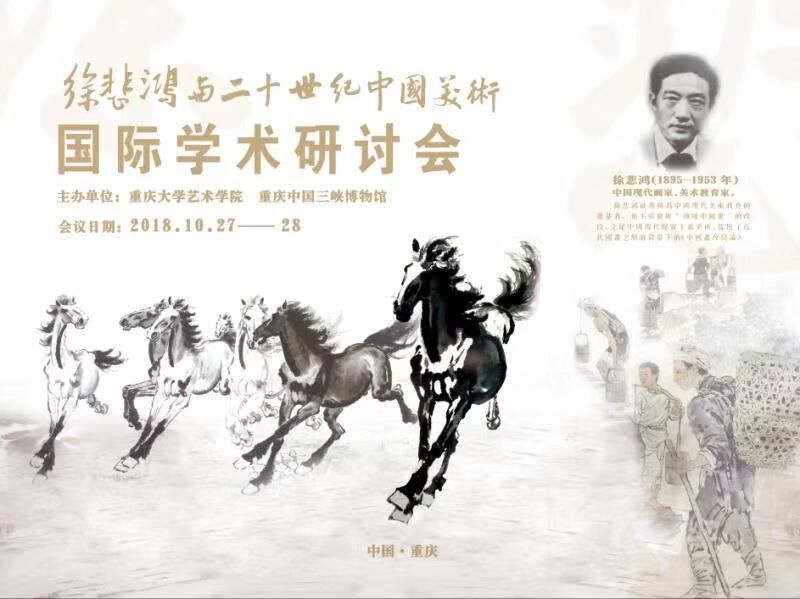
On the morning of October 27, the opening ceremony of the International Seminar on “Xu Beihong and 20th Century Chinese Fine Arts” was held in the Academic Lecture Hall, Science Building, Huxi Campus of Chongqing University. Professor Luo Sangui from the School of Arts presided at the opening ceremony. Related officials and experts present at the opening ceremony include: Yu Yuanmu, former deputy mayor of Chongqing and deputy director of the Standing Committee of the Municipal People’s Congress of Chongqing, Zhang Hua, secretary and chairman of Leading CPC Group, CPPCC, Changshou District, Chongqing, Yang Kuang, vice chairman of Chongqing Federation of Literary and Art Classics and deputy secretary of the Leading CPC Committee, Tang Changlun, deputy curator of China Three Gorges Museum, Xia Zhining, assistant to president of Chongqing University and director of Huxi Management Committee, Professor Chen Ruilin from the School of Arts of Tsinghua University, Liu Xilin, a researcher of the Theory Committee of Chinese Artists Association and the National Art Museum of China, Zheng Gong, former vice president of the Institute of Fine Arts, Academy of Arts of China, Yang Biwei, former vice chairman of Chongqing Artists Association, Wei Dong, secretary general of Chongqing Artists Association, Liu Shuguang, dean of the School of Arts of Southwest University, Huang Zuolin, dean of the School of Arts of Chongqing Normal University, Yin Jun, dean of the School of Arts of Chongqing Technology and Business University, Ling Chengwei, director of the Rear Area Art Research Center of Sichuan Fine Arts Institute, Zhang Chengkang, secretary of the School of Arts of CQU, Long Hong, deputy dean of the School of Arts of CQU, Professor Zou Jianlin from the Department of Arts of Sichuan Fine Arts Institute, Professor Qiu Zhenglun from the School of Arts of Southwest University, and Wang Qingyun, associate editor of Chinese Art of China Art Publishing House.

More than 50 experts and scholars have attended the Seminar. They are respectively from Tsinghua University, Renmin University of China, Chinese National Academy of Arts, Central Academy of Fine Arts, Guangzhou Academy of Fine Arts, Guangxi Arts Institute, Xi’an Academy of Fine Arts, Luxun Academy of Fine Arts, Yunnan University, Sichuan University, Chongqing University, Sichuan Fine Arts Institute, Southwest University, Chongqing Normal University, Northwest Normal University, Northwest University for Nationalities, Xuhan University of Technology, Central South University, Shenzhen University, Nanjing Normal University, Lingnan Normal University, National Museum of China, National Art Museum of China, Beijing Painting Academy, Xu Beihong Museum, China Three Gorges Museum, Jacqueline Culture and Art Center of France, Central Art Research Institute of Malaysia. In particular, foreign experts include Professor Philip Jacqueline from France, Professor Zheng Haoqian from Malaysia, Associate Professor Du Hongwei from the USA and Researcher Chen Daquan and Researcher Chen Jingjing from Singapore.
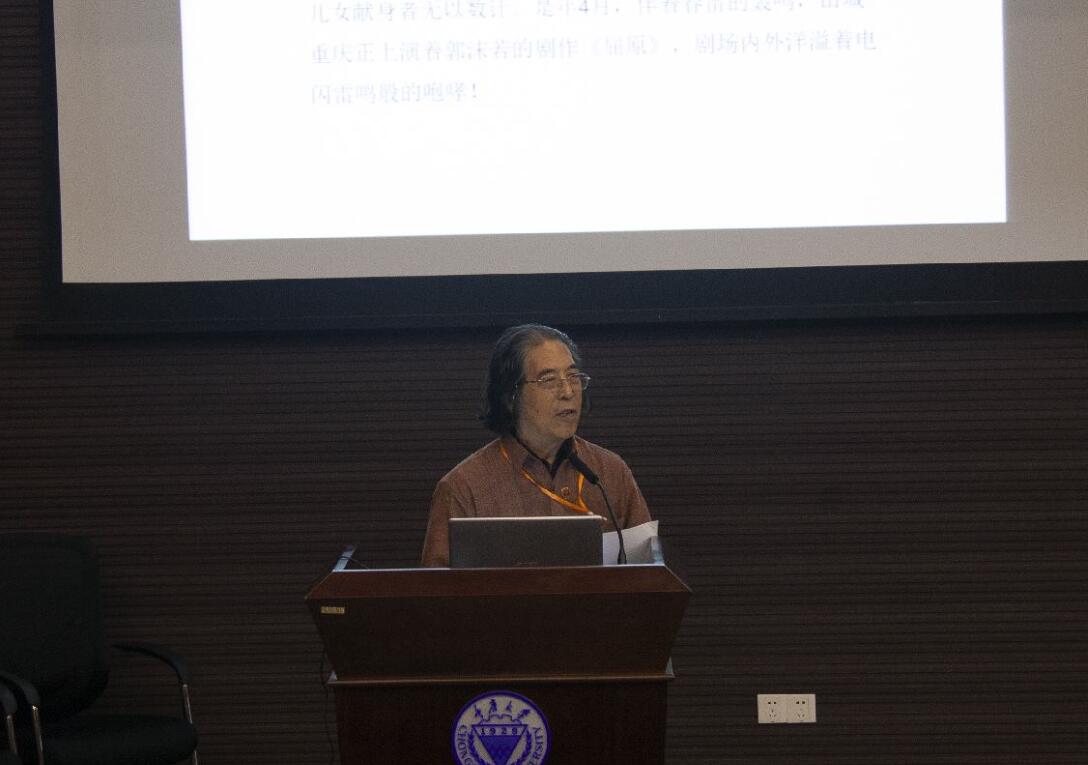
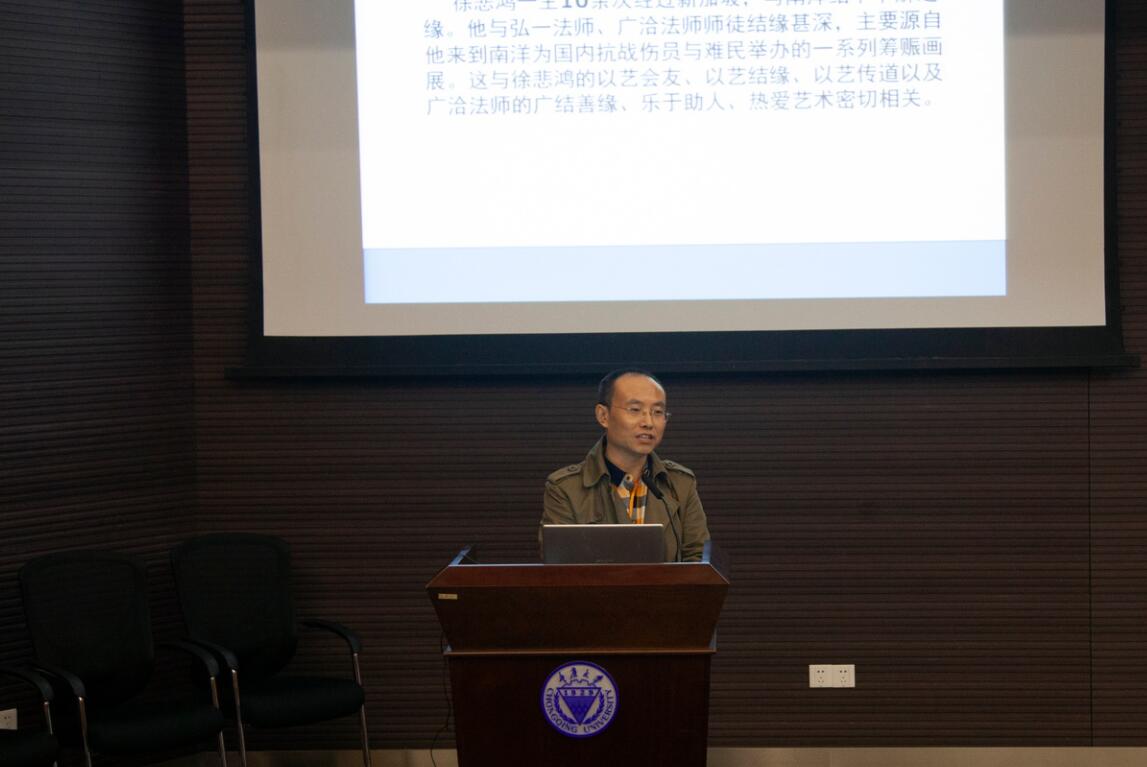
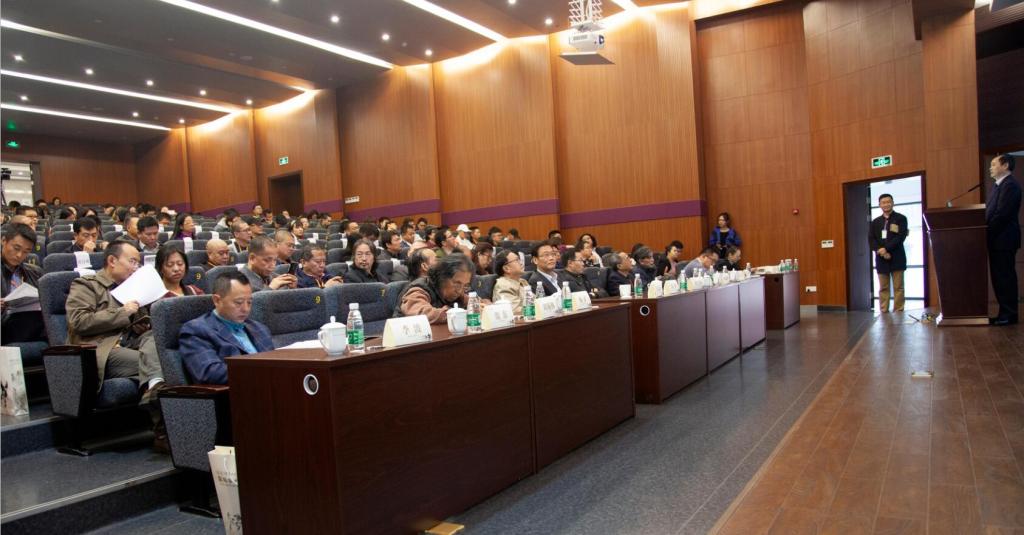
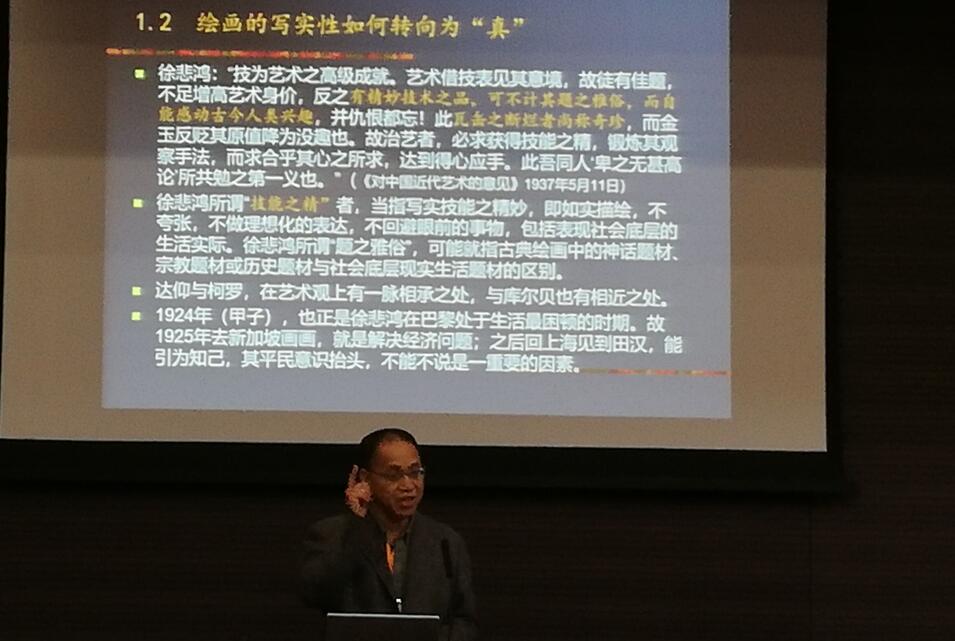
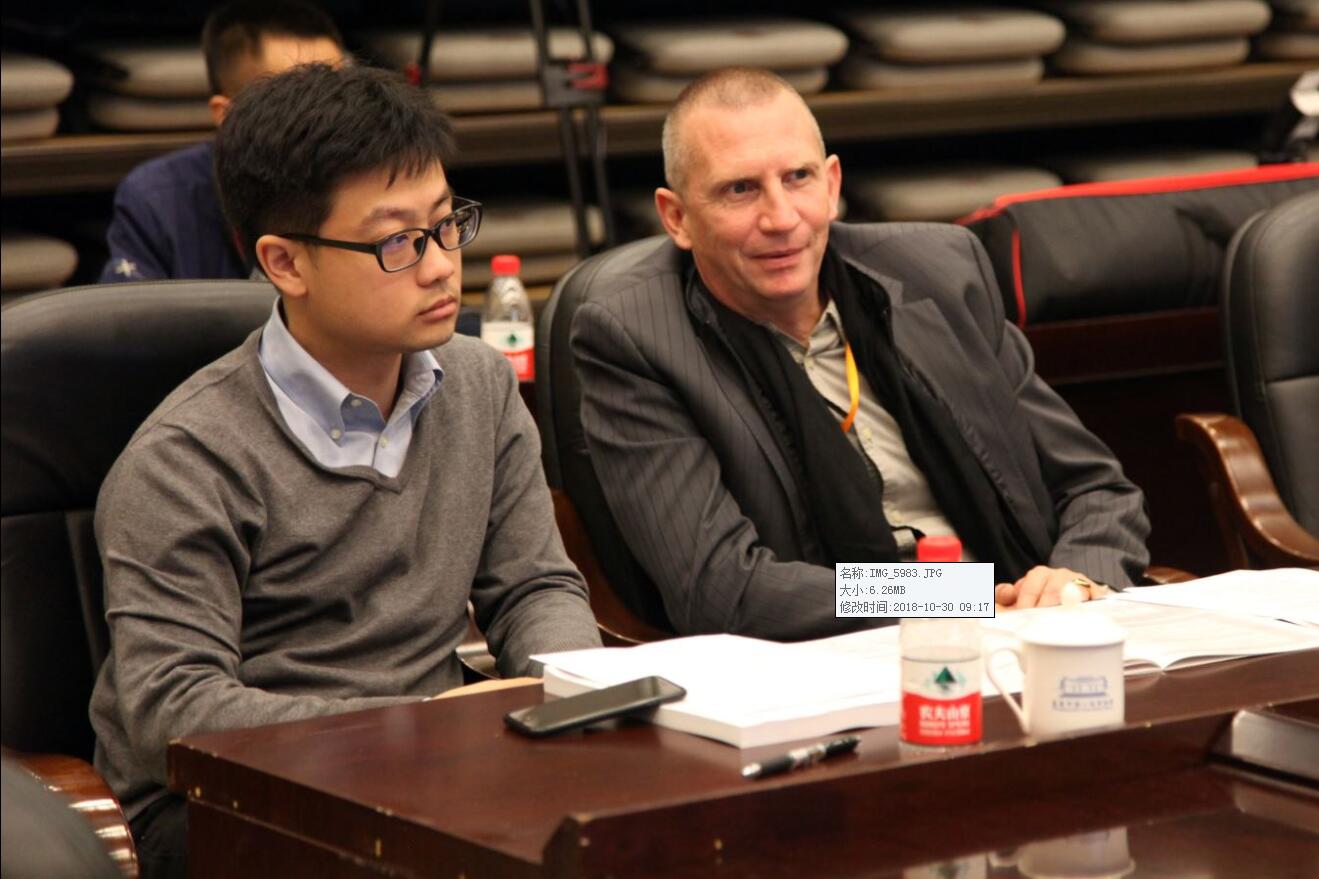
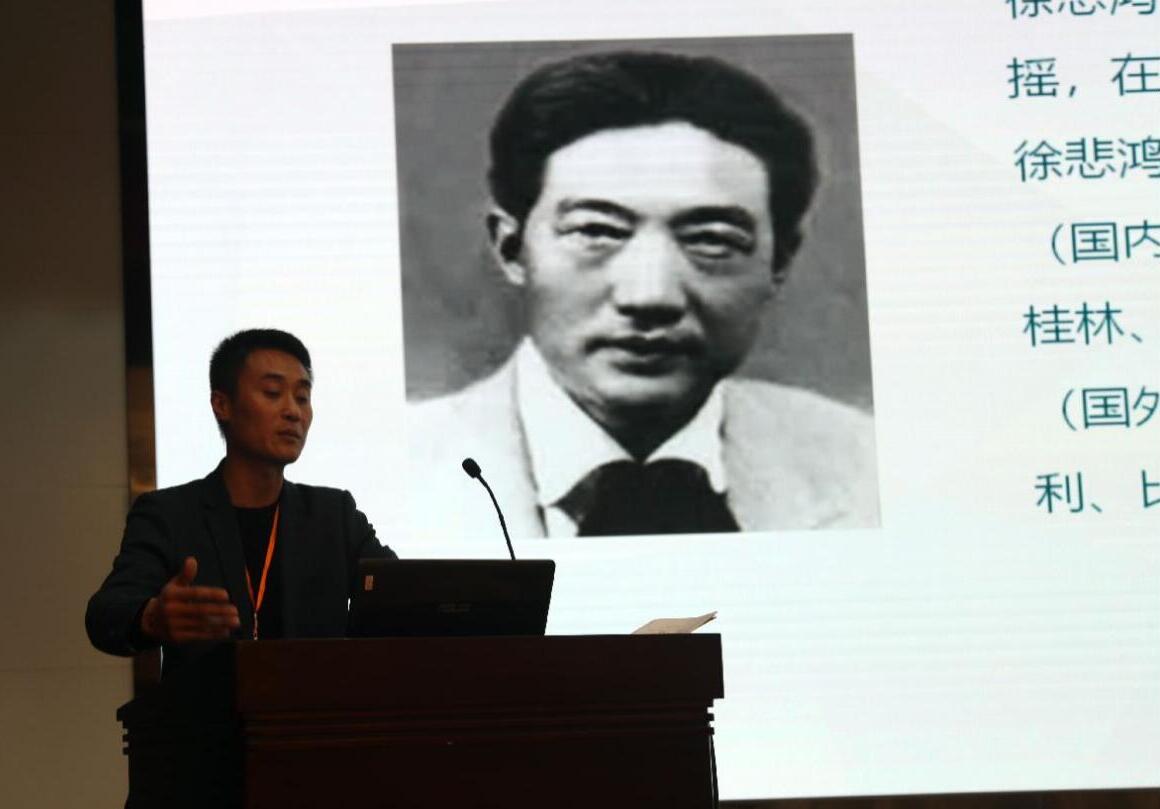
On October 28, nine academic reports were delivered in Conference Room 314 of the Office Area and the Academic Lecture Hall (Office Area 511) of China Three Gorges Museum. Experts paid a visit to the A Look-back on Xu Beihong’s Life – Exhibition of Xu Beihong’s Painting Works in the Anti-Japanese War Period located at Temporary Exhibition Hall D, 4/F, China Three Gorges Museum immediately after the academic report sessions. At 16:30, the closing ceremony of the International Seminar was held in the Academic Lecture Hall of China Three Gorges Museum. Professor Luo Sangui, dean of the School of Arts of CQU, presided at the closing ceremony on behalf of the sponsors. At the closing ceremony, each group reported their respective sessions. The sponsors’ representatives extended their gratitude towards all sectors of society and the attendants. The International Seminar was then brought to a successful and satisfactory end.

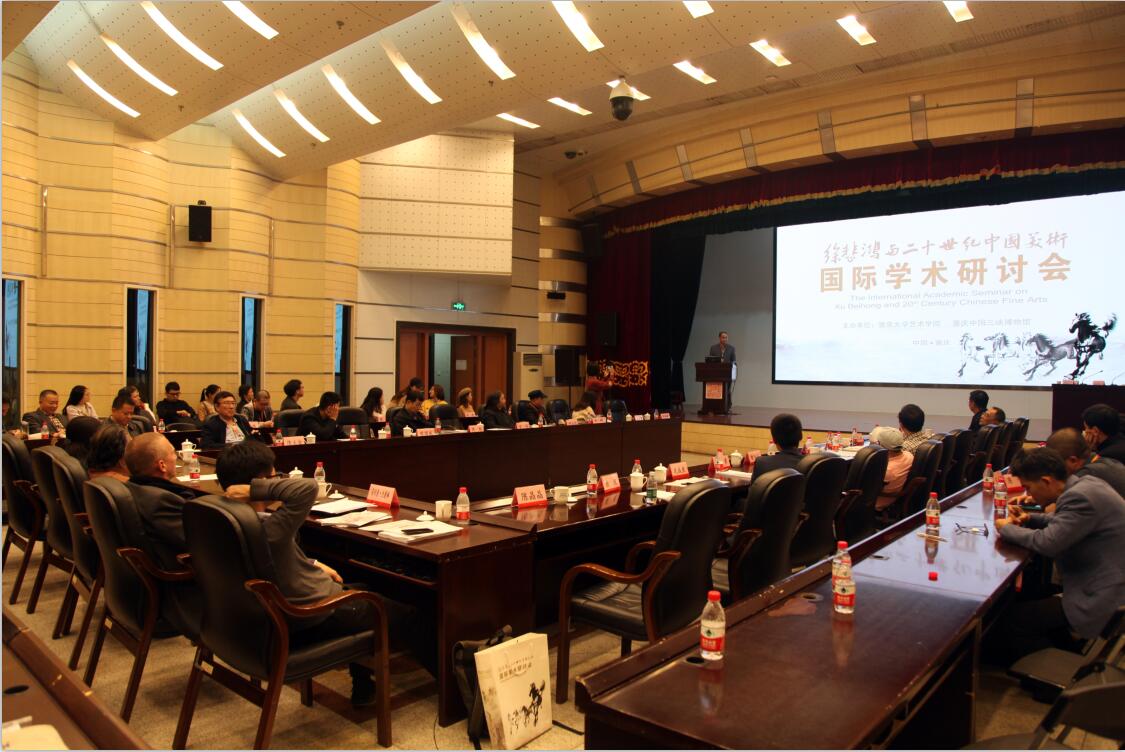
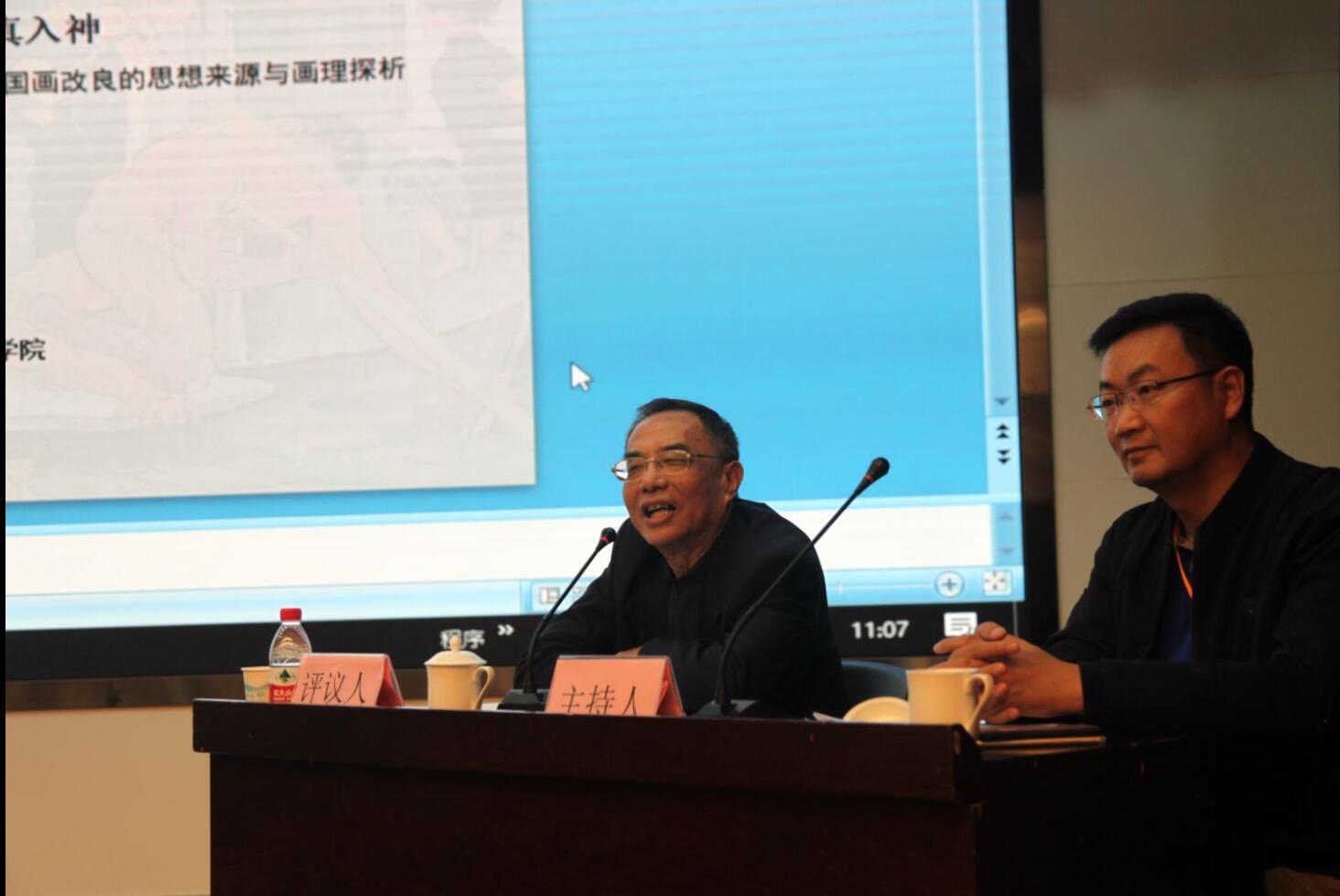
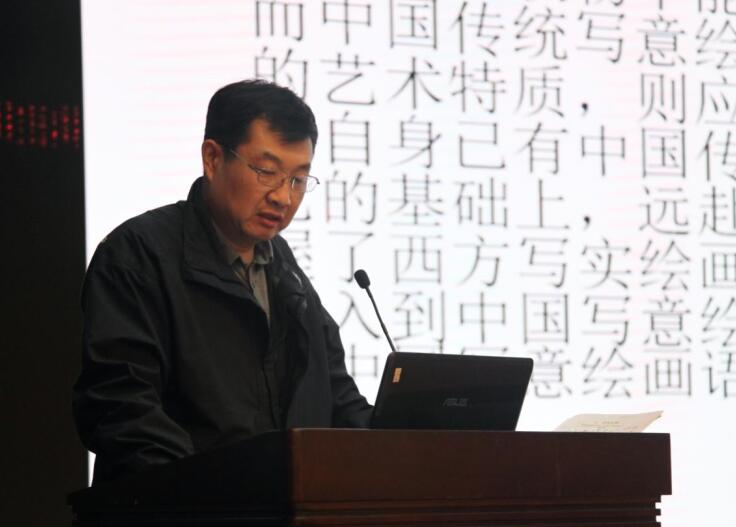
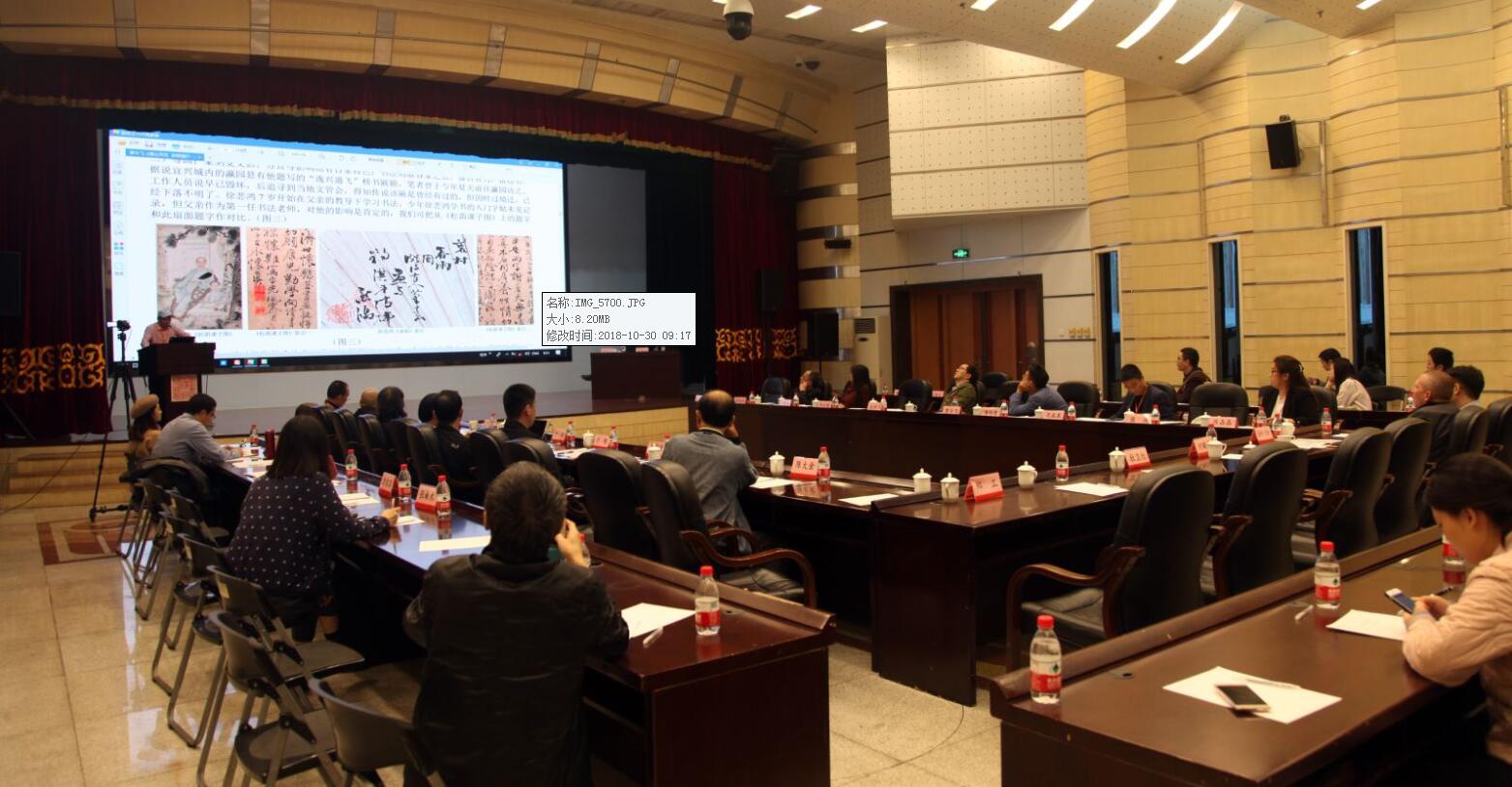


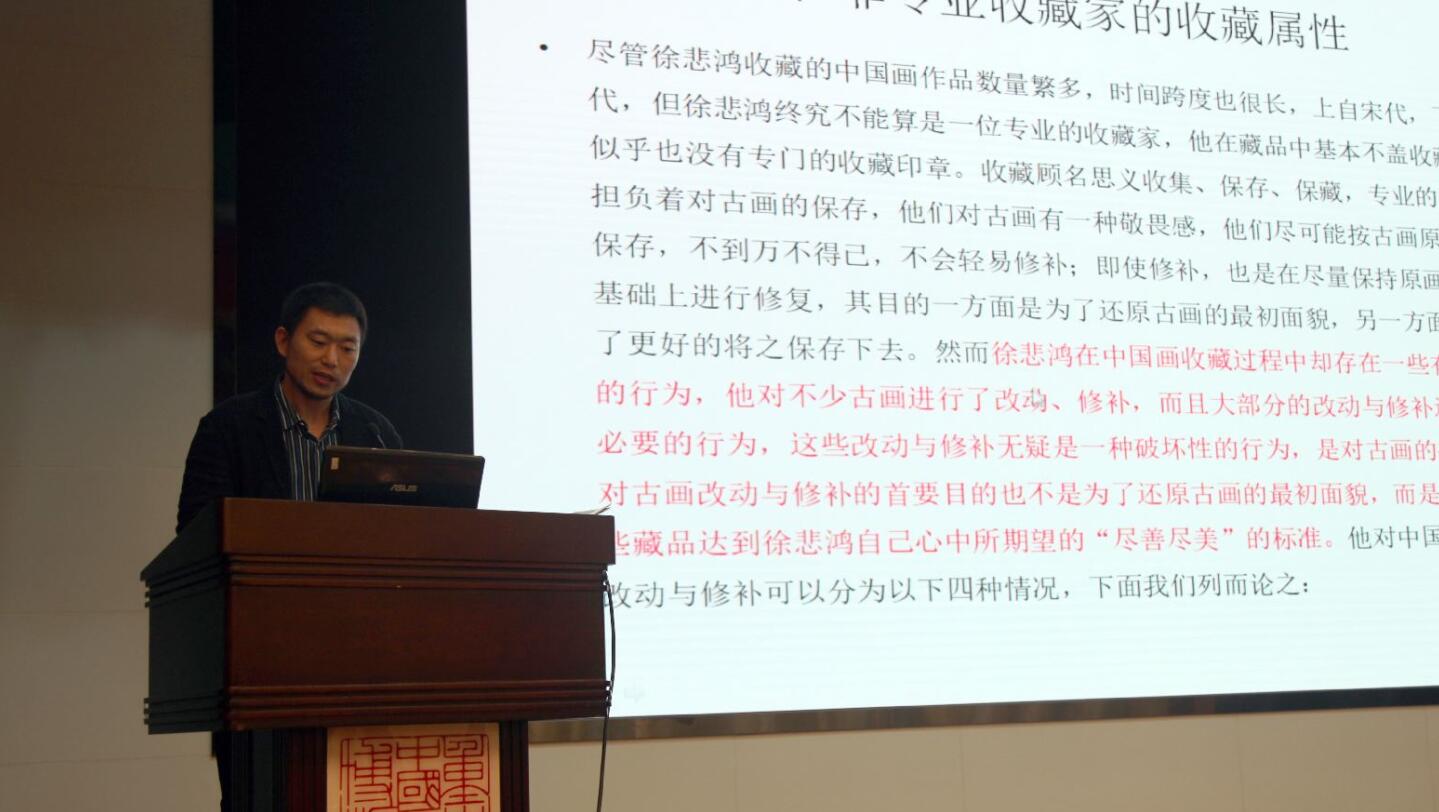

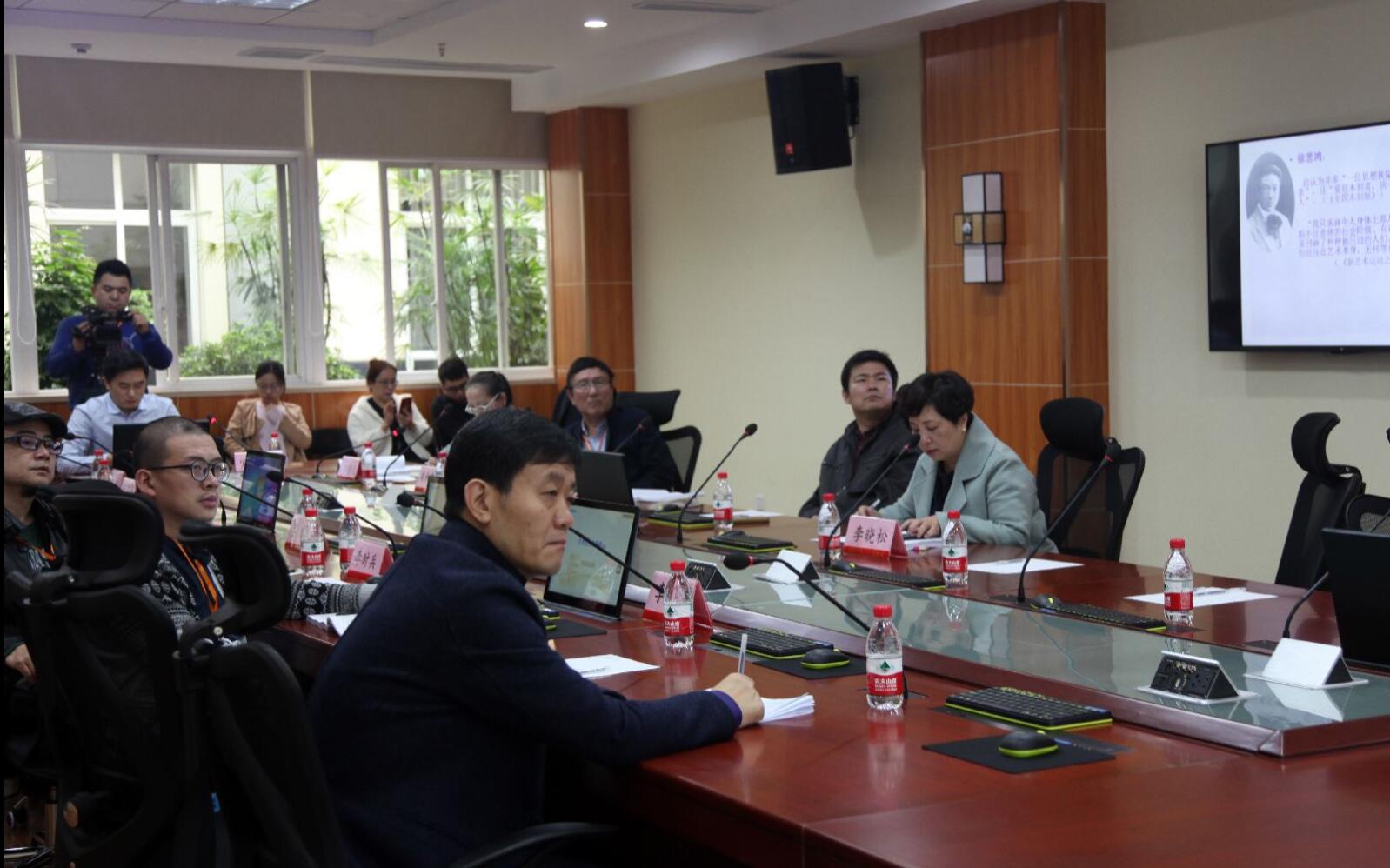
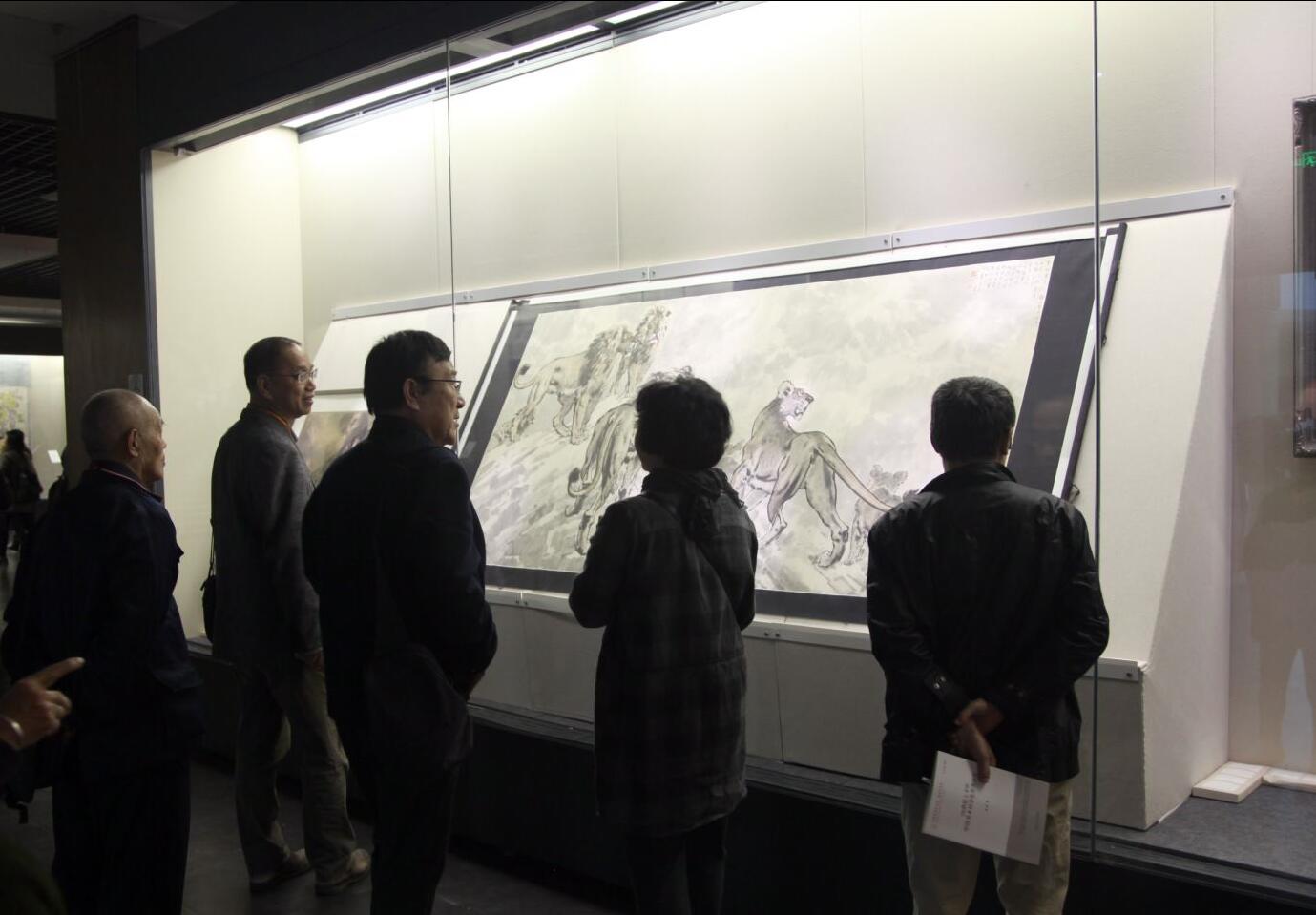
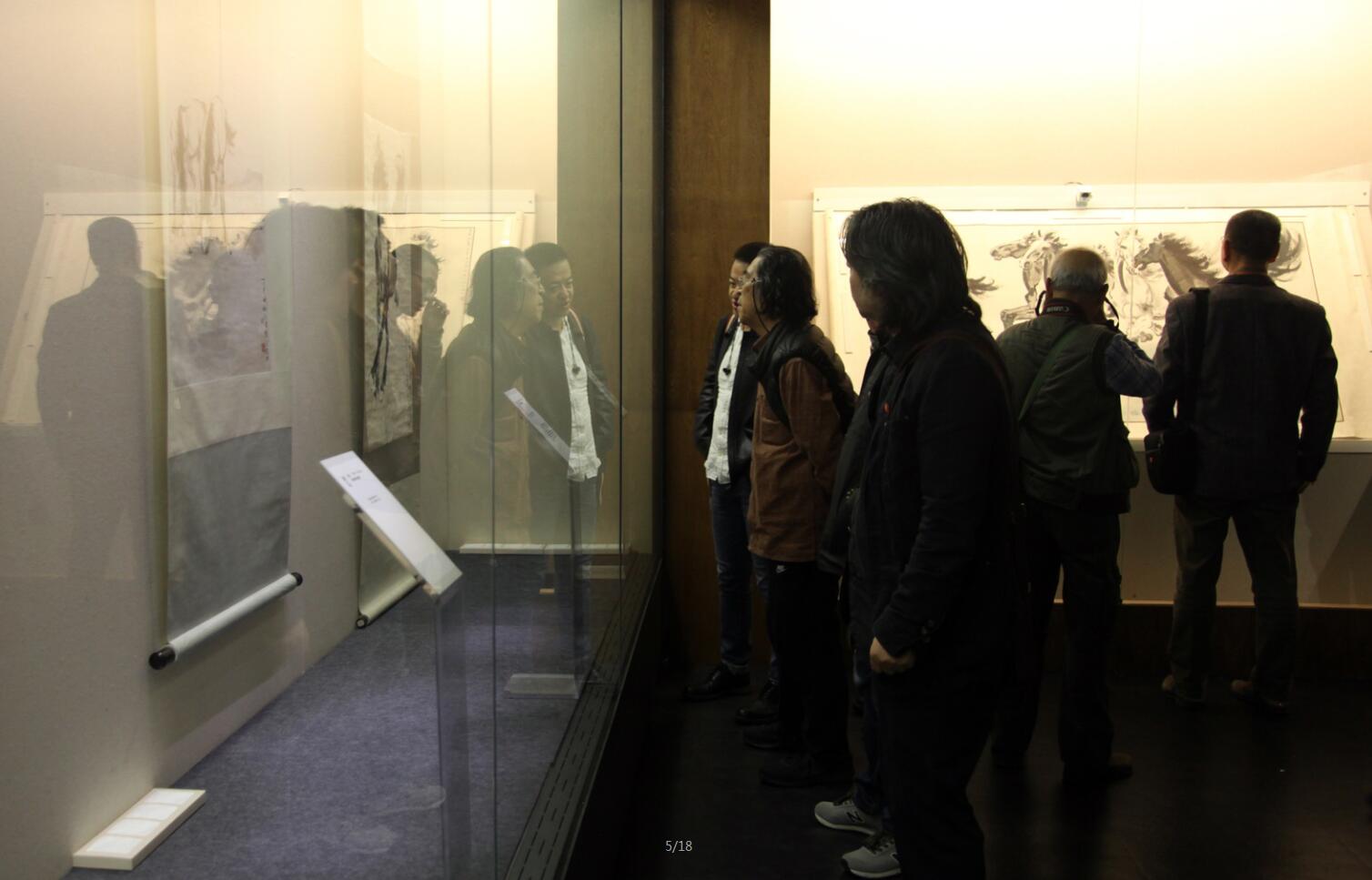
The International Seminar is made up of two sessions, which were held respectively at Huxi Campus of Chongqing University on October 27 and the China Three Gorges Museum on October 28. It covers ten topics, including research of Xu Beihong from the perspective of artistic idea history, research of Xu Beihong and characters of the Republic of China, research of Xu Beihong from the perspective of China-foreign exchange, traditional Chinese painting improvement by Xu Beihong and Chinese fine arts history view, Xu Beihong and realism, research of Xu Beihong’s view of art, research of Xu Beihong’s works, research of Xu Beihong’s collection, research of Xu Beihong’s influence on Chongqing and the research of Xu Beihong’s influence on the present times. The success of this International Seminar has the following positive effects:
Firstly, it responded to the demands of the time. This International Seminar tried to explore the development history of Chinese fine arts in the 20th Century, with Xu Beihong and related stories as the focus. It is based on native culture and extends beyond the international horizon. Its ultimate purpose is to reveal the Chinese aesthetic spirit and traditional value of culture accumulated in the interaction process between “international horizon” and “localization”, “creation” and “transformation”, “heritage” and “reformation” involved in creation, research and education of Chinese arts in the 20th Century as represented by Xu Beihong.
Secondly, it developed the national spirit. During the Anti-Japanese War period when Xu Beihong served as a teacher at the National Central University Campus of Chongqing University (currently Songlinpo of Chongqing University), Xu Beihong created a number of artistic works that carry realistic spirit, comply with the national aesthetic preference and manifest the Chinese manner. In this period of severe national survival crisis, Xu participated in the Anti-Japanese War by making such artistic works. He effectively transformed the core values, including national independence and national prosperity, into the affective commitment and conscientious behaviors of people, and made substantial contributions to the Anti-Japanese War and national liberation. In particular, the excellent artistic works he created in Chongqing embody profound spirituality, broad aesthetic nature, strong emotionality, prominent epochal character, and extensive applicability. Those artistic works have become the historic cultural emblems that demonstrate the patriotic thoughts and carry forward the national spirit after the 20th Century.
Thirdly, it inherited the academic cultural vein. Based on the historic contribution and practical significance of Xu Beihong and from the perspectives such as inheritance of cultural vein and cultural vein of inheritance, the artistic achievements and academic contributions of Xu Beihong and his school of thought were explored and reorganized in a theoretical, historic, scientific and profound manner, and their modern significance was systematically interpreted. The International Seminar will help us fully understand the Chinese culture elites and the spiritual meaning as represented by Xu Beihong after the 20th Century- In this new era of the great rejuvenation of the Chinese nation, the Seminar focused on the standard of the national art, stuck to the stance of Chinese culture and drew essence of western culture, and tried to inherit the outstanding academic cultural vein and expedite development and prospering of contemporary Chinese culture and art from perspectives like “cultural confidence” and “cultural self-consciousness”.
Fourthly, it facilitated disciplinary development. The International Seminar is the first large-scale academic conference titled “Xu Beihong and the 20th Century Arts” in recent years. It did not only reveal the latest development of current research of Xu Beihong, and was also part of the specific implementation of construction of the world key university and “Double-First-Rate” university by Chongqing University. This academic conference and the related activities played a positive role in the humanistic and social science construction of Chongqing University. In particular, it helps with academic resource integration, promotion of disciplinary theory and optimization of disciplinary education in the construction, development and improvement of the arts related disciplines.
Fifthly, it deepened the exchange and cooperation. The core purpose of the International Seminar is to promote the “consensus”, “cooperation”, “exchange” and “reciprocity” between different countries, regions and fields with “shared values” as the basis. A number of young and elderly well-known scholars from home and abroad attended the International Seminar, and brought about a good deal of high-quality original outstanding academic achievements. Those practically revealed the latest trend in research of the artistic creation, research, education and social activities in the 20th Century centering on Xu Beihong. It included diversified, in-depth and open exchange of ideas and thoughts that integrated multi-perspective consideration, multi-disciplinary integration, multi-material connection, multi-method crossing and multi-idea accommodation.
